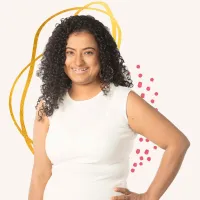The Nerve To Lead Podcast
with Sangheetha Parthasarathy
On The Nerve to Lead podcast, your host, Sangheetha Parthasarathy encourages CEOs, Entrepreneurs, deep thinkers, the round-pegs-in-square-holes, change-makers and visionaries to share their stories of power, pleasure and passion.
We cover everything from nervous system regulation, high achievement, trauma healing, parenting, partnership and attachment, intimacy and more. You will also get to learn the stories and knowledge from our expert guests and thought leaders.
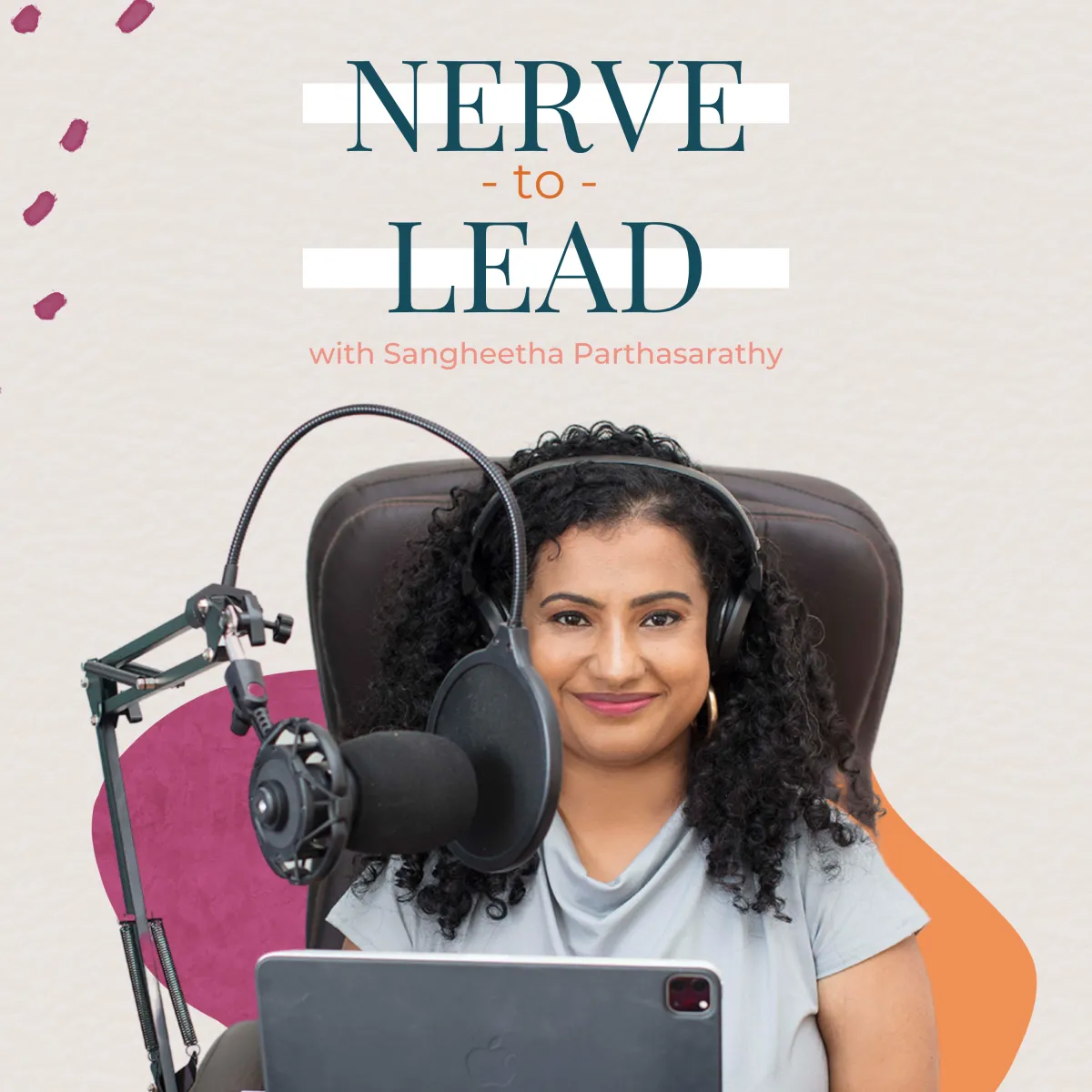
Apply to be a guest on
Nerve to Lead Podcast
Welcome to 'Nerve to Lead' podcast. Apply here to be a guest on the podcast with Sangheetha Parthasarathy.
Invite Sangheetha as a
guest to your podcast
Invite Sangheetha, a Nervous System Coach, Speaker and Consultant to be a guest on your podcast.
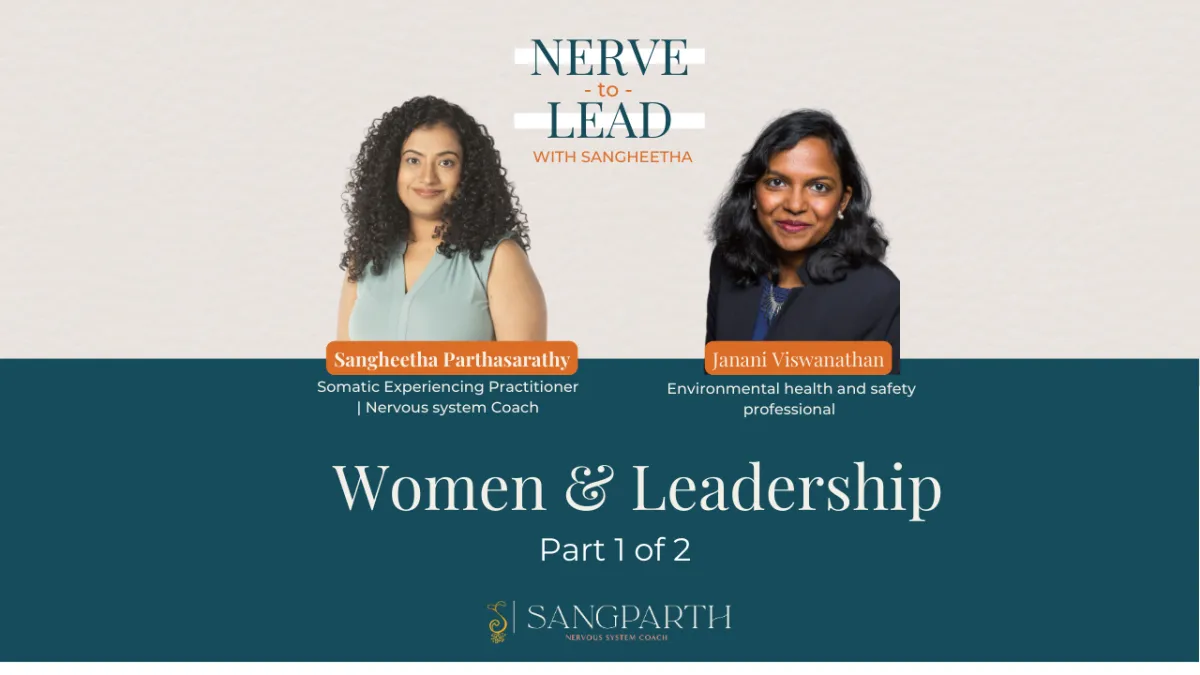
Women & Leadership (Part 1 of 2)
Women and Leadership, a first generation BIPOC woman in leadership - what are some of the unique aspects of this journey ? Join me in conversation with Janani Vishwanathan as we explore the somatics of how we hold power and leadership as BIPOC women.
You can connect with Janani on https://www.linkedin.com/in/viswanathanjanani/
LISTEN TO THE EPISODE
EPISODE TRANSCRIPTS
INTRODUCTION
Welcome to the Nerve to Lead podcast. Here we explore power, pleasure, leadership, identity, belonging, parenting, and couplehood, and explore stories of navigating through life, finding both authenticity and attachment through the common lens of the nervous system. I am your host, Sangheetha Parthasarathy and I'm so glad you're here.
INTRODUCING JANANI VISHWANATHAN
Today I have a very special guest with me, Janani Vishwanathan. we're so happy to have you on. Welcome.
Thank you, I am so happy to be here too.
So Janani would you like to introduce yourself? Tell us a bit about what you do.
Sure. So I grew up in Chennai and I currently live in California. I am a environmental health and safety professional. And I have a small family of myself, my husband and I have a two and a half year old daughter, so that's my world. Thank you.
BEING THE FIRST BIOSAFETY GRADUATE IN THE U.S.
And can you tell us a bit more about your work and how you chose it? Did it choose you?, just a bit more about what you do?
Sure. So it's like there's this running joke that's like in India, you become an engineer first, and then you figure out what you want to do. Sometimes people figure out, like they completely go away from their path. And then like there's people like me who are trying to like, stay in the path, but then trying to figure out or choose things that they like. So what happened was I decided to do biotechnology and I wanted to do psychology or like journalism, like something in arts. But then my scores were too high to do arts. That is what you're told. So I ended up doing biotechnology. And then after that I wanted to do my master's in some field related to it, so I chose this. I worked for a year as a food microbiologist in India. And like that is something that I realized that I really liked doing because it was a mix of interacting with different kinds of people. So I used to interact with like different chefs and then talk to them about their food. So I interacted from like the butchers to the top chefs and I had a lab in one of the five star restaurants in Chennai.
And then, so that made me realize that okay, you know, biotechnology is not all always about like being a doctorate or anything like that, because I didn't want to do a PhD and I had to find. So I applied for this master's program called Biological Safety, which was an expansion of food safety. Like, so it's a field where it's a mix of you interact with scientists, you are still in the field, but then you are not doing work in the lab. You get to like, my strength I found was working with people, talking to people and like sort of bringing about change with people. Like, so safety makes you feel good. So what made me feel good was like when I was a food microbiologist, is that, hey you know, today everybody ate happily and everybody went home safe. That's the point of it. And so this was an expansion of that. And then I come to the US, I went to University of Massachusetts. I come to my university and I learn on my first day that the program had been existing for like four years and I was the first ever student who had enrolled in it.
Wow.
So, which was actually surprising to me because I was like, you know, sitting in India, I was like, why would anyone not want to enroll in this program? But then I went ahead with that. The good thing was that there were people, like my professors who were supporting me. The con was that there were courses that kept getting canceled because I was the only student who was enrolling for it. Right. So Environmental Health and Safety is a department that is there in every corporate or every university. It's a supporting department. It's not an educational department, it's a supporting department. So I just like looked that up and I just I emailed the biosafety officer of the university saying - Hey, you know, I am in this program. And I know you're not an educational department, but I don't know much about it. And I thought, I will benefit better if I learned from you in addition to my coursework. And I think she was the best thing. Talk about mentors, right? So during the first month, she said - Hey, yeah, you can come over and shadow me. I started shadowing her in the second month. She created a paid position for me. So all through my master's, I had a job in the EHS department. So that's where it all started.
So I knew that when I graduated, I'm gonna either have like a really good career because, this is such a niche. And I was told by many people that, Hey, you're the first person, like you're the first biosafety graduate probably in the country. There are like bio safety professionals, but they don't have this background, educational background as me. I knew that I might, I'm gonna like either do big or probably have to, might have to return to the country. But thankfully I did well. My first job was at an Ivy League school. I worked at Princeton university. That was my first job. And right now I am in a smaller, in a startup company in as part of the senior leadership team. So I head the environmental health and safety department in my current role.
LEADERSHIP ROLE AS A WOMAN OF COLOR
That's fantastic. I think that's a really lovely story that you don't get to hear often, and there was so many elements in that story that I was just resonant with and listening along. So thank you for sharing that. Tell us a bit more about your experience being in a leadership role. Especially being a woman of color. Tell us about what the journey was like for you and what it is like for you.
Yeah, so this current role for me is pretty recent. So I've completed like six months, of being in this position. And I moved from being an individual contributor to people in leadership positions trusting me and handing me this opportunity to lead the department. I want to say that it's been exhilarating, right? When I thought about it, okay, there's this opportunity where I don't have anybody, I am the decision maker. And which means there's a lot of nervousness that comes along with it because it's a responsibility. And as I said previously, this job means it's to ensure every single person, every single employee goes home safe to their family. That is my responsibility. So it means that identifying everything.
So I work in a manufacturing environment, and my job is to make sure that I am involved in making decisions about all the safety in terms of like the culture of safety and this was one of the things I learned when I was at Princeton is that I work with like noble laureates who are like, Hey, I've been doing this for like 30 years, 40 years, I've never had an accident. And I had to like talk to them to say, yes, you didn't have an accident, but that doesn't mean it's not going to happen. So this modern technology or this technique is actually going to help you keep you safer. So I had to bring all that knowledge here and work with this group also to bring that along. Definitely. Yeah, lot of highs and lows as well, because in my case, I felt like the imposter syndrome, right? after always having somebody mentor you or having someone who supported you or whom you looked up to to make these decisions. Now you're in a position where you have to do that, at least in a smaller setting.
And now a small break. To talk about more resources, we have created an autonomic safety assessment for parents, which helps baseline our co-regulation capacity. which is available for free to download and use.
https://www.sangparth.com/parenting-checklist-form
It is available as a link on the episode show notes, now back to our conversation.
Yes. I think it's a prevalent and very important issue that I feel like when we have more female leaders, more female researchers, more women in problem solving slash authority, like you know, ability to make decisions, that changes isn't it?
DECISION MAKING IN LEADERSHIP - HOW DOES BEING A SOUTH ASIAN WOMAN AFFECT THIS ?
That's what I'm, Your leadership is influenced by the fact that you're a woman, the fact that you're a woman of color, you're a first generation immigrant and a mom right. I mean, tell us a bit more about that.
Absolutely. I actually wanna give a couple of examples. And that's not just related to my work. So one about my work, there's one problem that came up that our team worked on where it was about chairs for employees. And my colleague and I, we recognized that there were like more petite women. And when the chairs are ordered in bulk, they did not keep in mind like the demographics of the group or the employees was not taken into consideration when they say - Hey, this is perfect for an average person. What does an average person mean when your demographic has more just myself, right? I am petite and I needed a chair. My colleague is petite and we need to be accommodated even if it is like 2% of the population, 2% or like 10. And it depends on where, even in the US like where you are, which state you are in. So we had to actually say that and make accommodations. And we created a workplace where, people who are petite or people who are like taller than average, also had the right chairs because you sit on it for eight hours a day, you need to have comfortable chairs. And you're talking about like when women are there, like problem solving Yes. Because I'm problem solving for myself and for people like me. Absolutely. Absolutely. Because somebody else did not think about it.
WOMEN, PUBLIC BUSES AND ECONOMICS
And the other thing I wanted to share was my nonprofit initiative that I worked on. It's called 'No More Nirbhaya' which is part of Aware. And when we started this, over five years ago and when we were researching my friend Sandhiya and I were researching and we were like talking with different nonprofits across India, and we were collecting research from across the world. One of the things that we found out was the data about women, right? In cities. There are other nonprofits who have done this research where there was data that says - Hey, you know what? Women need all these things. women need more public transportation because they don't have their own vehicles. The number of women who drive motorbikes or who are comfortable going in autos are less, and they need public transportation, which means the city has to think about more about the women who are traveling with children or who might have to.
If just because there is not public transportation, women are not able to work long hours because they're dependent on somebody else to pick them up because of safety it's just amazing to look at all this data and there are, there are countries who, the cities who work closely with the nonprofits and that was our goal as well, where we work closely with the city to say, there's so much research that proves that if you have a city that is accommodated and up to date for women, then it's economic impact is higher. The family is gonna earn more, the children are going to be more safer.
So yes, it is so important for governments and for city councils to work with researchers who are doing research on women's safety or who are doing research on how it impacts, how the transportation paths and streets impact women. If you have more street lights, that place is gonna be more safer, which means absolutely those places are gonna feel more safer, those women are gonna. So, and that's the other place, right? It's one we are talking about corporates where they need to do it and it's much more easier for them. The other larger impact is cities who have to think about not just because historically men used to go out and work and women were at home, and that's how the cities have been designed.
Yes. we have to talk about the whole design change of our cities and our towns.
BONDING OVER NAMMA CHENNAI - WOMEN TRAVEL IN PUBLIC BUSES FOR FREE AND ITS IMPACT
Absolutely. And yeah, because we're both from Chennai, you probably know this, but now women go free in public transport buses in Chennai. And I think I love that initiative and more women travel in public transport buses now, therefore the buses are safer. Also I think it has contributed to the overall, exactly like you said right?
A lot of men, because traditionally being the breadwinners have access to a bike or auto or whatever, right? Or carpooling whatever. And this, I think that there's definitely been a shift after that came about. And yeah, this is lovely. The context of how data can actually help create a more equitable world, if we bring, if we use that with empathy, I think is really powerful. Really powerful.
CLOSING AND END CREDITS
And this concludes part one of my conversation with Janani. Please join us in the next episode where we talk about leadership, success, and parenting. Thank you for joining me today on Nerve to Lead Podcast. The music you hear in this podcast was created by Sound Creed. You can find their link in the description. Thank you to Vaishnavi and Pavithra in team Sangparth for producing and editing this podcast. Did this episode resonate with you? If it did, please share it with your friends, family, coworkers, or clients. We would also love to hear from you. Drop us a note on www.sangparth.com
Thanks to Sound Creed for the music, you can visit them here https://www.youtube.com/@SoundCreedLLP
Curious about the work? Visit www.sangparth.com and book a free 15 minute call https://www.sangparth.com/15min-call
What we offer
Our Areas Of Focus
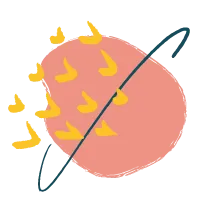
Career, Entrepreneurship& Leadership
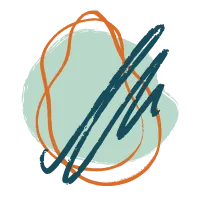
Sex, Relationships
& Parenthood
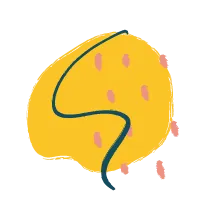
Eating, Movement &
Body Image

